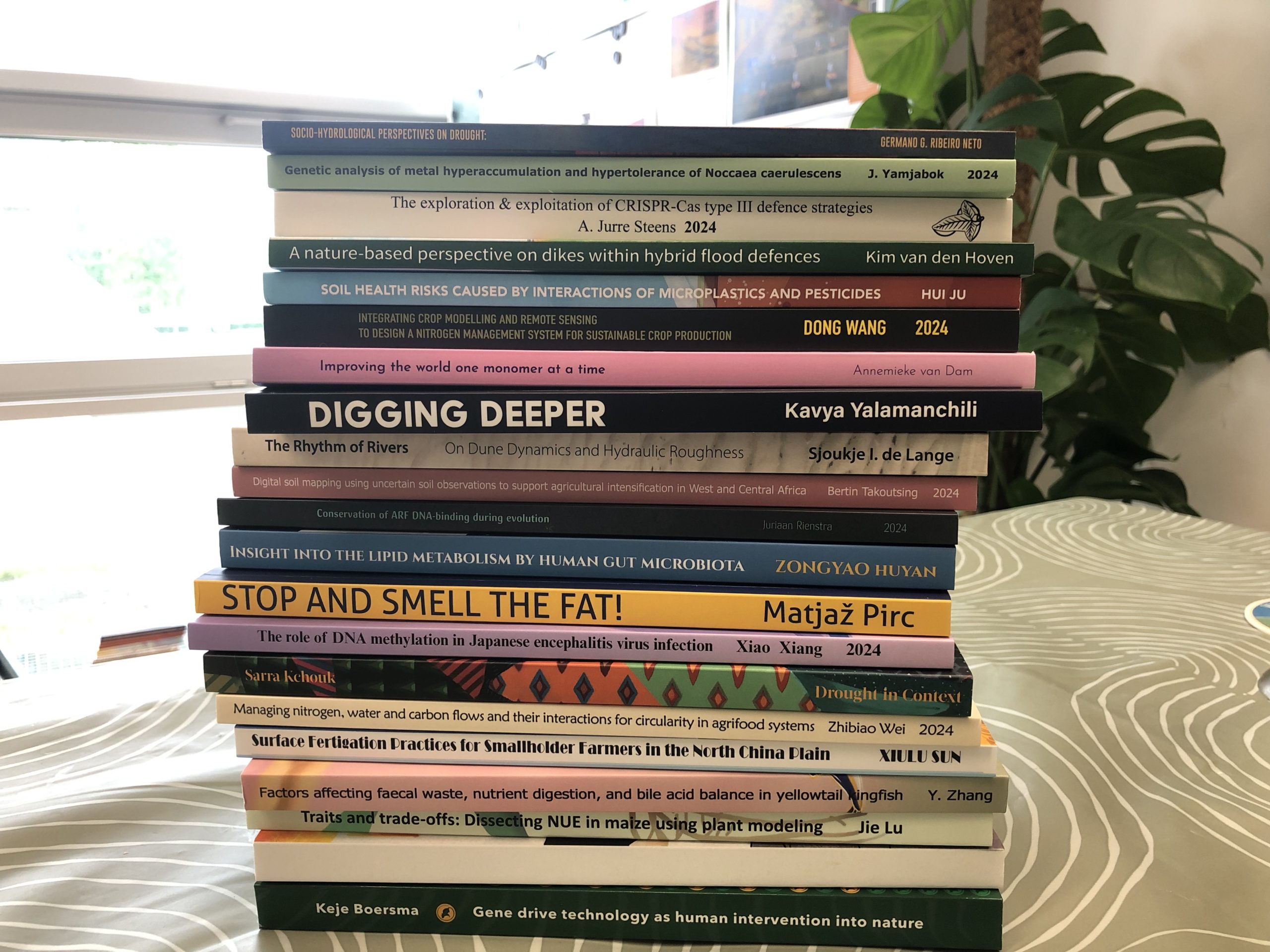More than 250 PhD students receive their PhDs at WUR every year. It is impossible to describe and summarize all these theses. In the column ‘PhD theses in a nutshell’ the selection of our science editors is briefly presented.
Cold storage for infant formula
During the production and storage of milk powder for infant formula, glycation can cause the formation of breakdown products that affect the quality of the product. Glycation is the attachment of sugars to amino acids or proteins. Chinese researcher Yajing Xie studied this in infant formula powders made of cow, goat and soya milk. Glycation destroys a number of amino acids, depending on the kind of milk. Most are lost in storage, and the higher the temperature, the more nutrients are lost. So keep it in the fridge.
Glycation Unveiled
Yajing Xie. Supervisor Vincent Fogliano
Big Brother spies on calves
Deaths and the use of antibiotics are big problems in the calf-breeding industry. Cameras, sensors and machine learning make early detection of disease theoretically possible. Chinese researcher Dengsheng Sun studied the potential for capturing the normal movement patterns of calves in models. The ultimate goal was to develop an instrument for fast detection of abnormal behaviour caused by disease. But that goal is not in sight yet. Interestingly, Sun openly questions whether more technology is in fact the solution to this problem. Calves fall ill because of the current production system. Early detection of disease doesn’t prevent disease.
Decoding calf patterns
Dengsheng Sun. Supervisor Peter Groot Koerkamp
Smelling the enemy
Cabbage White butterflies are in a threesome with their host plant and their natural enemy, the parasitic wasp. This trio communicate with each other via volatile substances. The Cabbage White smells those substance via chemical receptors in its antennae. Chinese researcher Qi Wang identified and researched the role of a couple of genes for those ‘odorant receptors’. One of the methods used was to use CRISPR-Cas9 to switch off those genes and then to see what effect that had on feeding, mating and egg-laying. Turns out a good sense of smell can be crucial for survival.
Odorant receptors in larvae and adults of a butterfly species
Qi Wang. Supervisor Marcel Dicke

 A pile of PhD dissertations. Photo Resource
A pile of PhD dissertations. Photo Resource 
